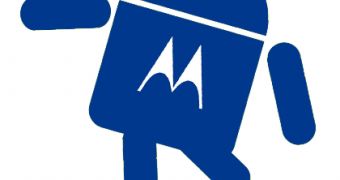Google's move to acquire Motorola came as quite a shock to most people. It was a bold move and an unexpected one from the software company. Now we have a few more details on how the whole deal went down, how the negotiations carried out and even details like the fact that Google outbid itself just o make sure it could get Motorola.
As most people speculated, real talks between the two companies only started after Google lost the Nortel patents bid, in early July.
Google's Andy Rubin, head of Android, approached Motorola interested in a patent deal. Motorola's 17,000 patents in the mobile field were a great lure for the patent-strapped Google, who was, and still is, increasingly pressured by competitors such as Microsoft and Apple.
But Motorola knew Google was desperate and knew that, without the patents, Motorola would be in a much weaker position than it already was.
So Motorola would only agree to a full buyout, something Google reluctantly agreed to. After it became clear that it would have to buy the whole company, Google proposed a $30 per share acquisition price.
But Motorola's advisers, correctly, pushed for more. The first formal bid from Google was at a much higher, $37 per share, after Motorola asked of $43.50.
Even this was not enough to convince Motorola and Google, who asked to be the sole bidder and to keep details of the negotiations quiet, upped its bid to $40 per share, $3 billion more than it originally wanted to pay.
Google ended up bidding $12.5 billion for Motorola, a 60 percent premium over what Motorola shares traded for on the day the deal closed. The deal is being reviewed by authorities and it will be several months before it closes, providing that the government doesn't find something to object to.

 14 DAY TRIAL //
14 DAY TRIAL //